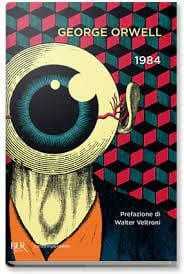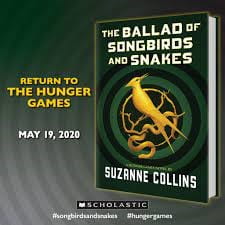Nowadays, dystopian novels are among the most impressively critically acclaimed ones, as well as likely the most appreciated by the audience. Even though they are not as famous as them, also utopian novels deserve to be mentioned. But what is the key of their success and more importantly, what are the differences between these two literary movements? That is what we are going to discover now, so please follow us in the discovery.
First of all, the difference between utopian and dystopian novels consists mainly in the manner they purchase the same purpose: improve the society we live in. In fact, the word “utopia” comes from the ancient Greek “ou” (no/not), “eu” (good) and “topos” (place). It also refers to an ideal, perfect and impossible to exist place, where all the citizens are equal and free, all the most important services are constantly available and the environment is respected and the atmosphere peaceful. On the contrary, the word “dystopian” comes from the ancient Greek “dys” (wrong, bad or harsh) and “topos” (place). It describes a not safe and also dangerous place, where in the majority of cases people suffer from hunger or lose fundamental rights such as that to personal freedom or privacy because of a totalitarian or inefficient government. To sum up, we can affirm that the utopian genre aims to permit the building- up of a better society through the hypothetical elimination of its negative features, whereas the dystopian one seeks the same objective through the explication of the damage that those same defects can lead to.
Secondly, we need to understand through some examples how these two kinds of novels actually show the problems of society and contribute to find a way to resolve them.
A very powerful utopian book is Samuel Johnson’s The History of Rasselas, Prince of Abissinia (1759). It tells about the vicissitude of the fourth son of the Abissinian king, who after growing up in a beautiful, idyllic African Valley without any problem or responsibility, decides to start a journey to find happiness together with his sister Nekayah, her own attendant Pekuah and a poet, Imlac.
They reach Egypt and after many troubles like the capture of Pekuah and some of her maids by some Arab marauders, realise that real happiness is impossible to find and decide to return to their homeland. Even though the masterpiece belongs to the apological genre, it is important that the main character’s departure from the remote valley represents the human thirst of experience, which urges him to look for an always happier condition, even if he can already have whatever he desires. In fact, the author believed that an absolute happiness was impossible to find on the earth, but only in utopian worlds such as Rasselas’ valley.
On the other hand, Delirium (2011) by Lauren Oliver is the first of three dystopian novels about Magdalena “Lena” Haloway, a 17-year-old girl of Portland , USA, living in a future time in which love is considered a disease to be prevented by recurring to a medical intervention that everyone has to attend after the 18th birthday. The plot focuses on the girl’s secret love story with a guy, Alex, and their projects to run away together in order to escape her operation. The main topic explored by the author is the modern obsession with the control of every sphere of human life: in fact, interventions like Lena’s are justified by arguing that a life without feelings can be predictable and also happier than a normal one. Therefore the writer’s main goal is to explain that feelings and emotions are necessary to our well-being, and that this obsession is insane.

In addition, 1984, published by George Orwell in 1949, warns about a future (corresponding to the year 1984 according to the novelist’s intentions) in which much of the world is involved in a perpetual war which sees superstates such as Oceania (which in the narrative fiction does not correspond to the real continent and includes Great Britain.). Oceania in particular is ruled by the Party, that persecutes the population with the help of the Thought Police and encourages a fanatic cult of the mysterious figure of the Big Brother. It is necessary to point out the actuality of the story developed in this novel in an age like ours, where our personal lives, thoughts and intentions can be really discovered by everyone thanks to powerful mediums like social media and the through is expressed from so many different points of view that sometimes it is very difficult to get clearly. Are we really sure to be really paying attention to our privacy and to be not publishing deliberately our private matters to unknown people? Till which point external entities are authorised to know about them and use this information to promote slogans, activities or products to us? Moreover, since years people are talking about a sick society that manipulates us in different ways, of which fake news constitute the most evident example. But the real question is the following: are this worries real, and if so, who are the people or what are the situations and lies we have to be afraid of?
Furthermore, the Hunger Games book trilogy (2008-2010; the prequel, The Ballad of Songbirds and Snakes was published in 2020), by Suzanne Collins depicts a fictional State called Panem, occupying about the same territory of the actual USA and which promotes the Hunger Games, brutal martial competitions between teenagers coming each from its 12 districts, as the main form of entertainment for its citizens.

Although the plot is settled in a fantasy context, the themes developed are once again the struggle against dictatorships, societal inequalities (in the novels, among the different districts of Panem, the different levels of the social pyramid or even among single different people), the importance of friendship, love, loyalty and compassion, of being able to distinguish appearance from reality and of avoiding hypocrisy.
In conclusion, we can state that in spite of the different ways employed every time to achieve the final target, utopian and dystopian novels can represent an original way to grasp complex concepts such as the contradictions of societies, to reflect about a respectful form of common life would be, and therefore to understand how to prevent negative phenomena like dictatorship and censorship.
We hope you have enjoyed our work. If you are interested in it, please leave a feedback at the link: https://anamendigain.edublogs.org/ and wait for our next post which is going to be published next week. Furthermore, if you also wish to acquire more information about the topic we have treated, the video below has been prepared for you.
April 12, 2021 at 4:55 pm
Very interesting post Andrea!! It includes a great video, too!Thank you!!